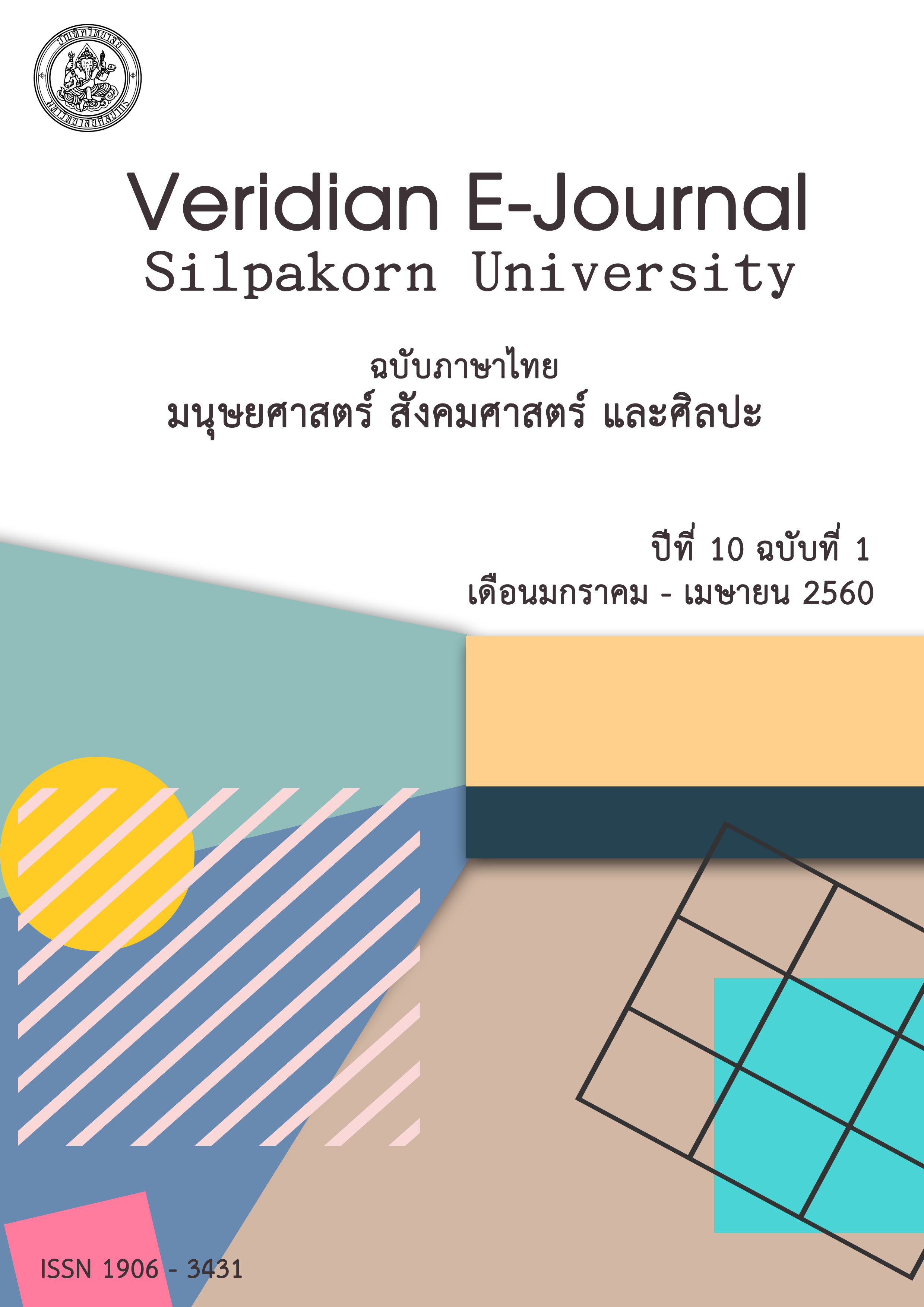การเรียนรู้ภาษาจีนเชิงวัจนปฏิบัติศาสตร์ของนักศึกษา สาขาวิชาการสอนภาษาจีนในฐานะภาษาต่างประเทศ คณะศึกษาศาสตร์ มหาวิทยาลัยศิลปากร
Main Article Content
Abstract
บทความนี้เขียนขึ้นเพื่อสำรวจการเรียนรู้และความสามารถในการใช้ภาษาจีนเชิงวัจนปฏิบัติศาสตร์คือ การใช้ภาษาจีนที่เกิดขึ้นในสถานการณ์หรือบริบทต่าง ๆ กัน ของนักศึกษาชั้นปีที่3สาขาวิชาการสอนภาษาจีนในฐานะภาษาต่างประเทศ คณะศึกษาศาสตร์ มหาวิทยาลัยศิลปากรจำนวน 35 คน โดยผ่านการสัมภาษณ์และทำแบบสำรวจ ผลจากการสำรวจพบว่าข้อผิดพลาดในการใช้ภาษาจีนสามารถวิเคราะห์ได้ 4 ประการคือ1.ขาดความรู้ทาภาษา2.ผลกระทบเชิงลบจากภาษาแม่3.ขาดสภาวะแวดล้อมทางภาษา 4. ผลกระทบเชิงลบจากวัฒนธรรม นอกจากนี้ยังเสนอแนะแนวทางการสอนภาษาจีนเชิงวัจนปฏิบัติศาสตร์โดยเน้นเนื้อหาเกี่ยวกับคำทักทายที่เหมาะสำหรับการสอนผู้เรียนภาษาจีนในระดับต้นอีกด้วย
The purpose of the paper is to investigate the Chinese pragmatic competence of third year students from the Teaching Chinese department of faculty of education in Silpakorn University. The studying methods used in this paper are known as questionnaire and interview. The result of the survey shows that the pragmatic failure of Thai learners can be divided into four aspects:the lack of student’s pragmatic competence, the negative transference of mother tongue, the learner's communicative environment and the negative transfer of culture. The author have also sumed up the pragmatic knowledge on the basis of four “Chinese course”. Given this, the author has put forward several countermeasures and designed a lesson plan about greeting and address form for teaching Thai Chinese-learners at primary level.

